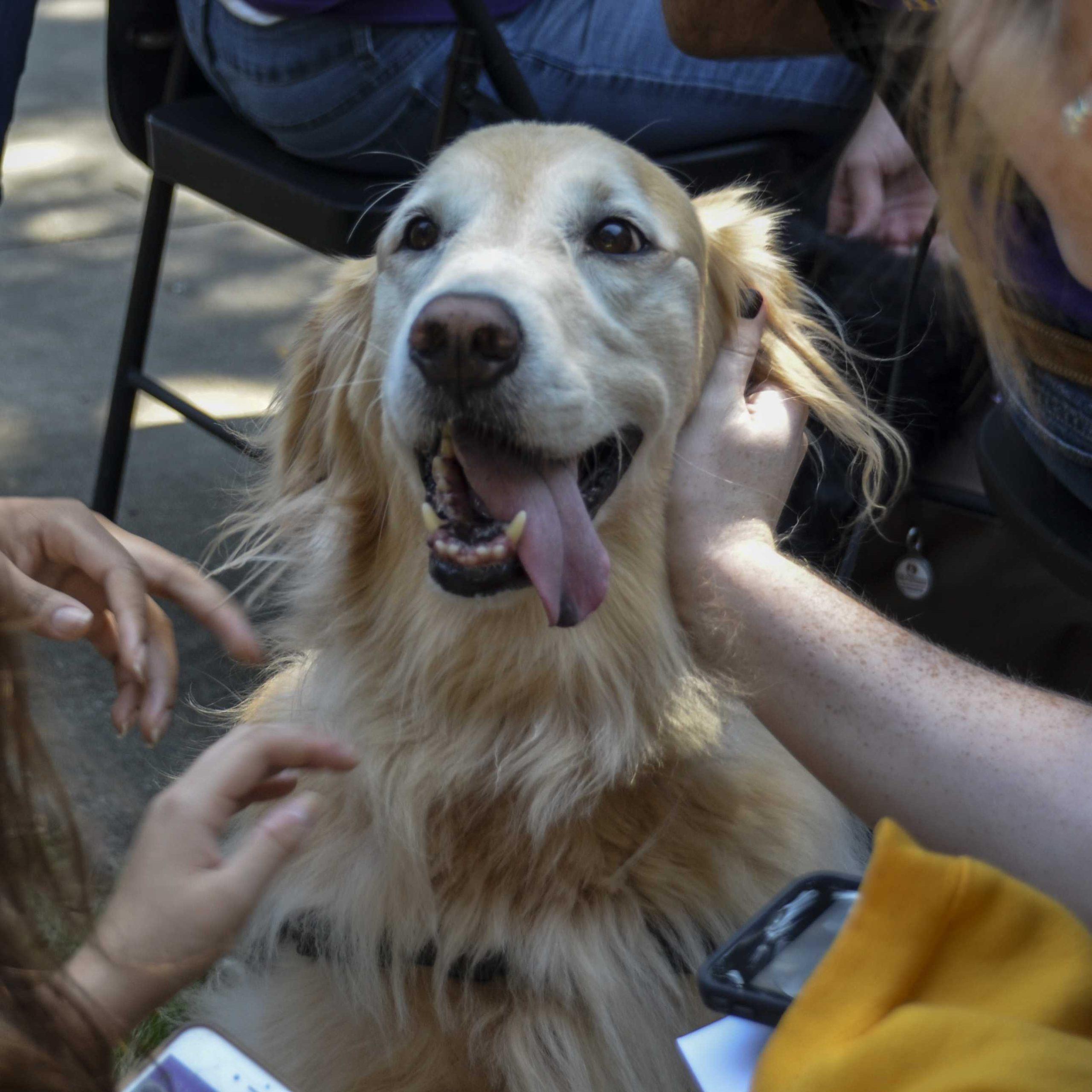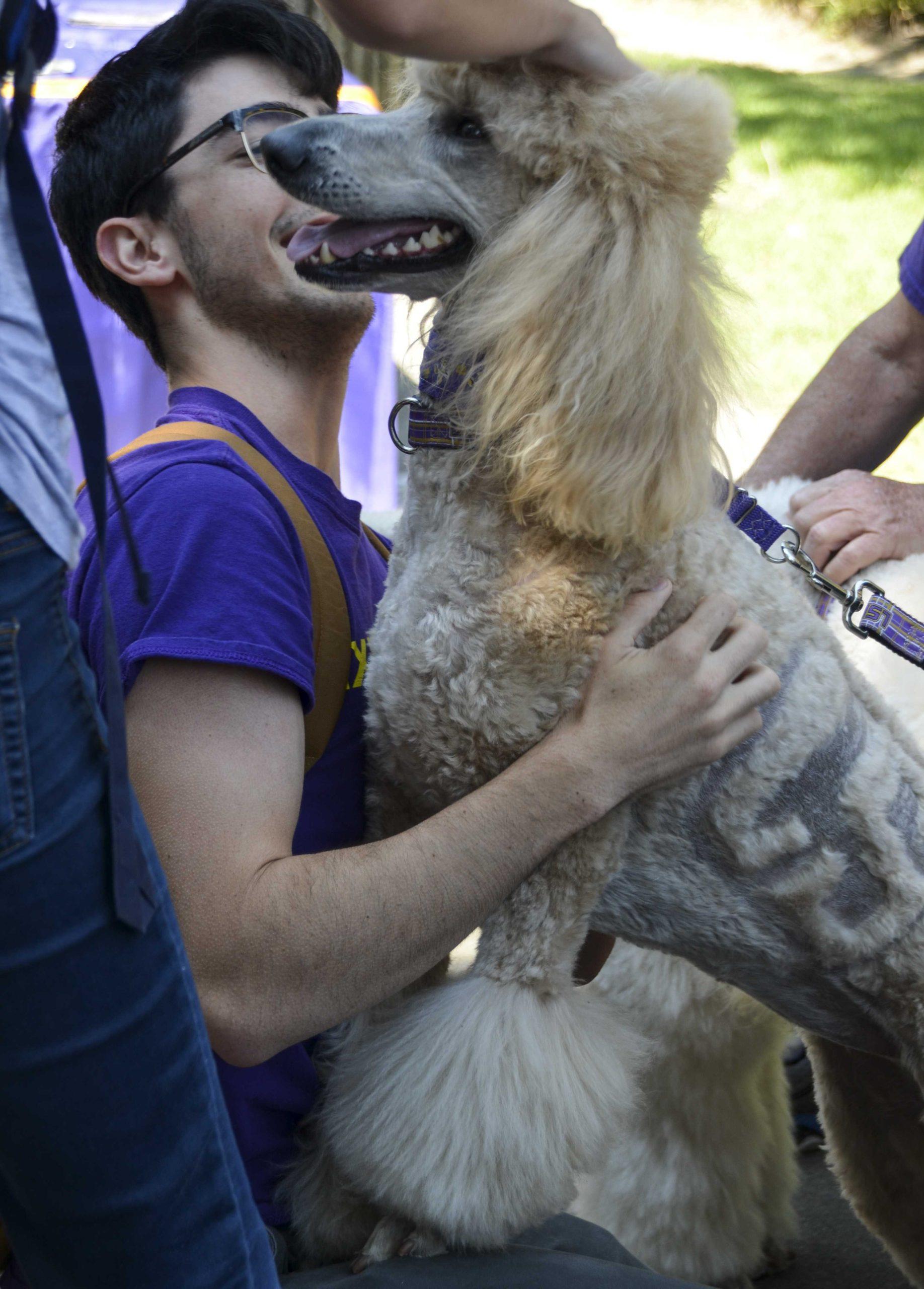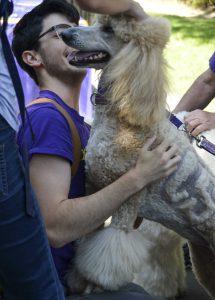The LSU School of Veterinary Medicine treats animals every day, but one organization within the college focuses on using animals to bring joy and relieve stress through animal therapy.
Tiger HATS is a 26-year-old program sponsored by the LSU School of Veterinary Medicine. Volunteers from the Vet School and the Baton Rouge community visit a variety of places in the city, such as geriatric care, libraries, hospitals, children’s care centers, rehab facilities and psychiatric treatment centers.
Tiger HATS started with just three facility visits in 1991 and now consistently has a waiting list of facilities that want them to visit.
Tiger HATS co-founder Stephanie Johnson said the program now visits 11 facilities each month, with over 80 volunteers. There are a few University students involved, but for the most part, the human and animal volunteers come from the Baton Rouge community.
The Pet Therapy event in Free Speech Plaza is an event hosted by LSU Cares: an initiative started by the University to promote a sense of community on campus. This year, the Pet Therapy event took place on Sept. 11 and Sept. 12 in Free Speech Plaza. A variety of events are being held during LSU Cares week, including pet therapy and red folder distribution; these include student guides for mental health.
The University typically hosts pet therapy events around midterms and finals week at Middleton Library or other “high stress” areas of campus.
“There is research that shows that pets help to lower our blood pressure and our heart rate,” Johnson said. “They reduce tension and improve our mood, ease loneliness and encourage exercise. Pets are nonjudgmental and someone who needs us.”
Computer science sophomore Adam Dugas said having pets around makes the University seem more like home.
“It really makes me miss my dogs every time they have this event,” Dugas said. “It makes everybody happy when there are dogs around, no matter what is going on in their lives.”
New volunteers go through training to learn about the various facilities visited by Tiger HATS and what is expected of them at the events. The animals undergo a training of their own. Before any Tiger HATS animal can help in the community, they must be “temperament tested” by the program to ensure that the animal is suited to the needs of the facilities they will be visiting.
“If you think about it, many of our students, especially those in the dorms, have left their pets at home,” Johnson said. “Seeing our therapy animals offer[s] a connection and a release to something they might be missing.”
LSU Tiger HATS demonstrates benefits of human-animal interaction
By Abbie Shull
September 12, 2017
Ginger enjoys the attention from LSU students at Free Speech Plaza on Monday, Sept. 11, 2017.
More to Discover
















